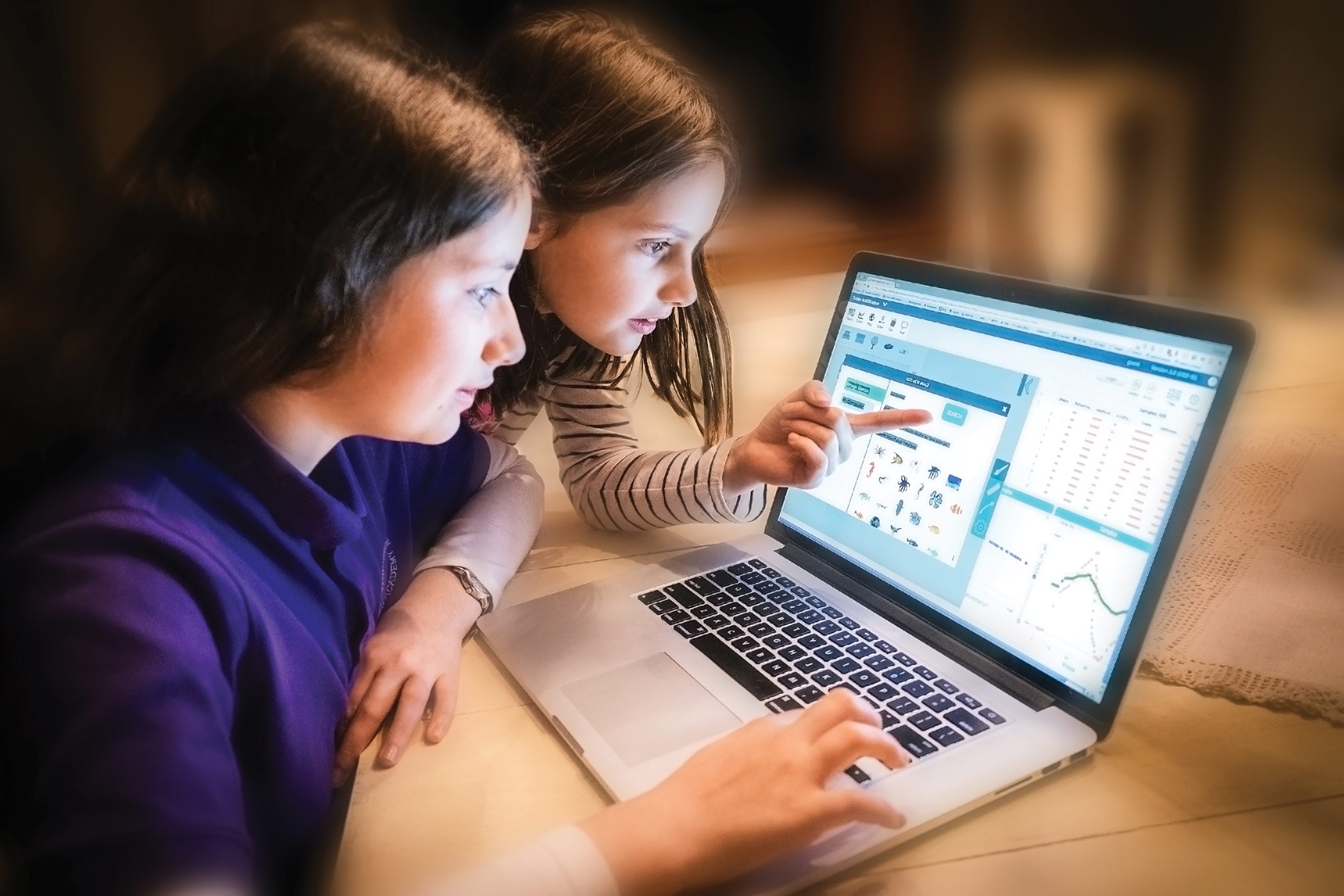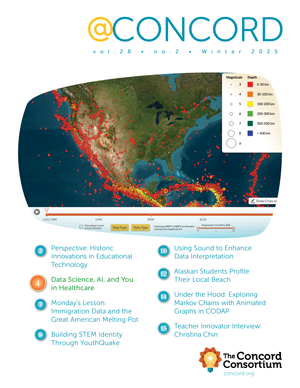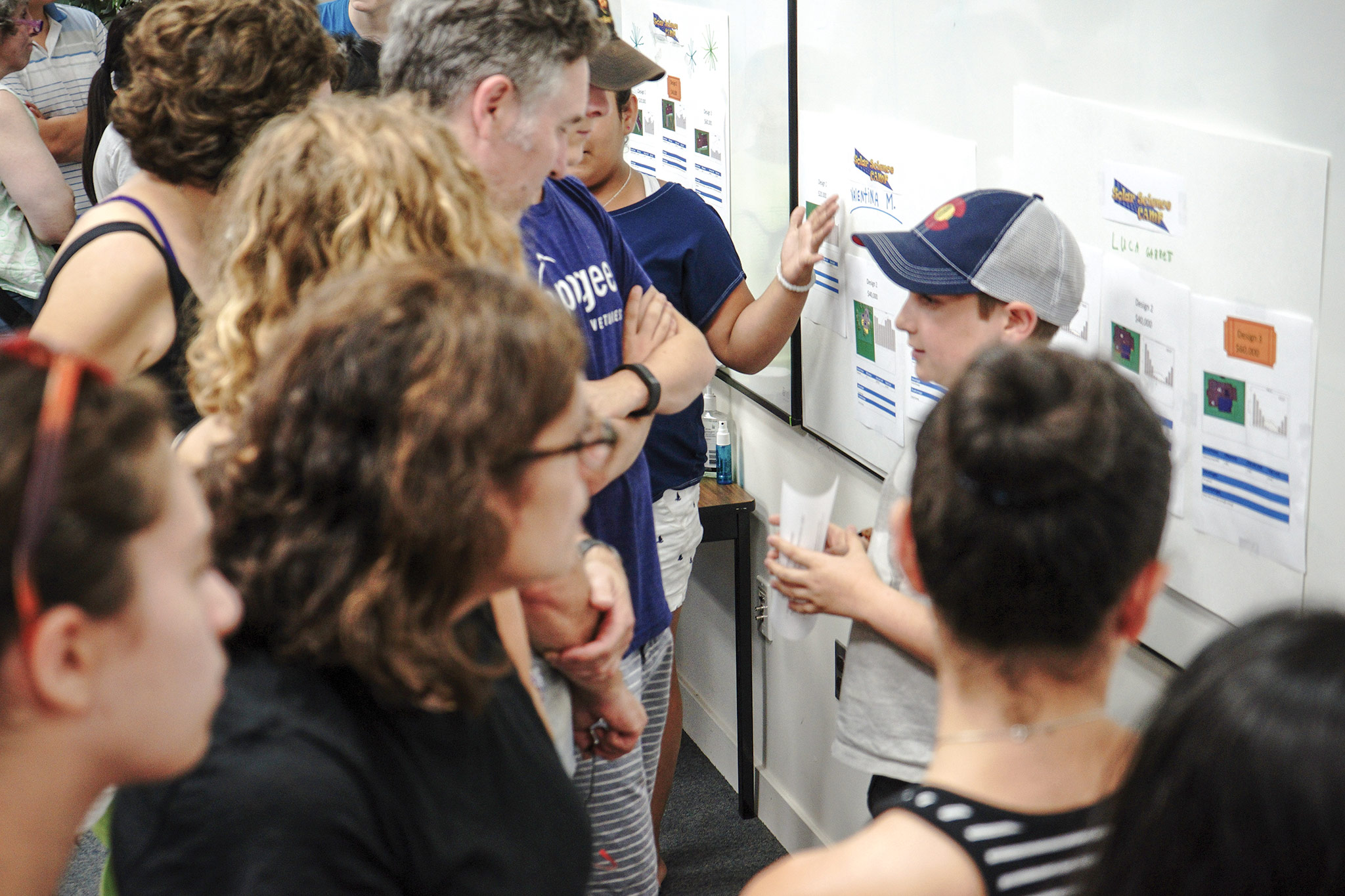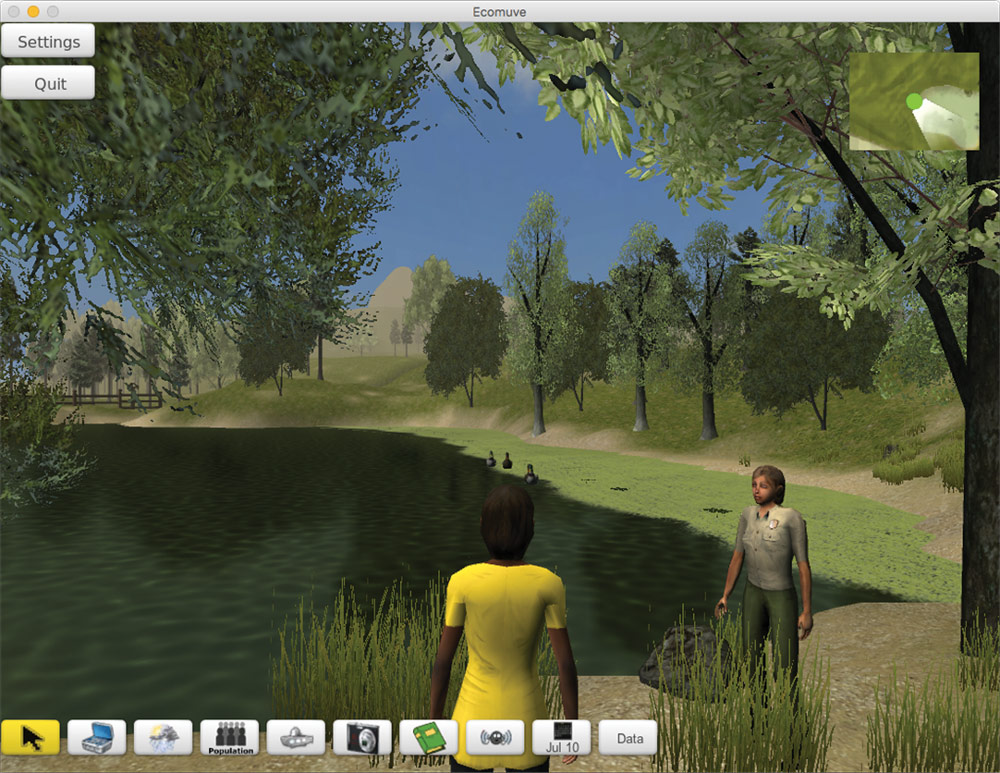Learning to Build a Sustainable World, Dragons Rule After School, Data Science Games, and more in Fall @Concord
Perspective: New Initiatives Open Doors for STEM Learning
A number of important trends have evolved that will shape the future of learning through technology. These paint an exciting picture for the coming years. The Concord Consortium is pursuing significant research and development opportunities at the forefront of these trends.
Learning to Build a Sustainable World
On September 3, 2016, the United States ratified the Paris Agreement, which sets the goal to confine the global average temperature within 2°C above pre-industrial levels. Unlike many other treaties, the Paris Agreement took a bottom-up approach—exactly how the goal is to be accomplished is left for countries to pursue. As such, its fulfillment will require epic efforts from the grassroots in each country. As Bill Gates said to The Atlantic, "We need an energy miracle."
Monday's Lesson: Students Making Models
One of the key practices of the Next Generation Science Standards (NGSS) is "developing and using models," which should be done in the context of exploring disciplinary core ideas and crosscutting concepts.
Dragons Rule After School: Helping Students Prepare for Biotech Careers
Geniverse is a digital game where high school biology students put genetics knowledge into action as they breed virtual dragons. Now we’re sending our dragons into afterschool programs, specifically those that support underserved middle school youth, with the goal of connecting the students with local biotechnology professionals to strengthen their awareness of STEM careers.
Data Science Games
The emerging discipline of data science combines computational thinking, mathematics, statistics, and content knowledge, paving the way for a new genre of educational technology: data science games. Funded by the National Science Foundation, our Data Science Games project is developing games and curriculum materials for middle and high school students to use data while learning science. The goal is to research the potential of this new genre of educational technology.
Integrating Knowledge Across Virtual Worlds
Imagine your students are visiting a virtual pond to learn about ecosystems. Their challenge is to figure out why all the large fish in the pond have died. Students examine the flora and fauna and analyze their relationships to each other and to the fish. They consider how human activity or weather might affect the environment and the health of the fish. They walk around the pond, talk to people, and dive underwater to collect data. Their complete engagement in this virtual world carries over into classroom discussions, which are lively and full of data analysis, arguing from evidence, and talking through ideas.
Under the Hood: Hands-on Interactive Activities with Leap Motion
The GRASP project is using the Leap Motion controller in desktop mode to capture hand movements and control web applications.
Innovator Interview: Carolyn Staudt
Learn all about Concord Consortium curriculum/professional developer, Carolyn Staudt.
News at Concord Consortium
The latest news from the Concord Consortium in fall 2016: data science education technology conference, middle grades students' understanding of big math ideas, zoom in to data literacy, and more.




